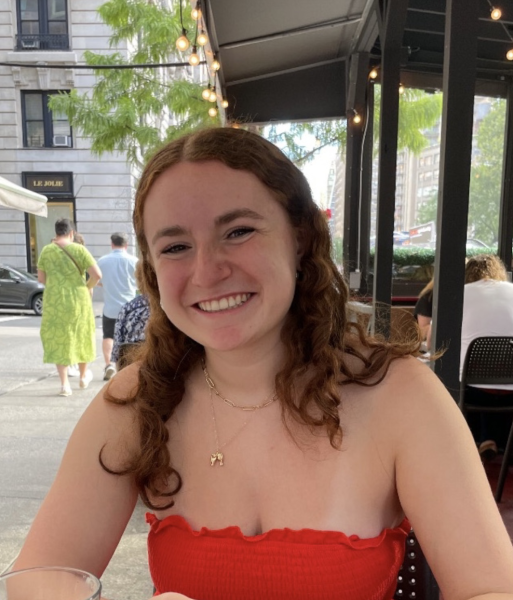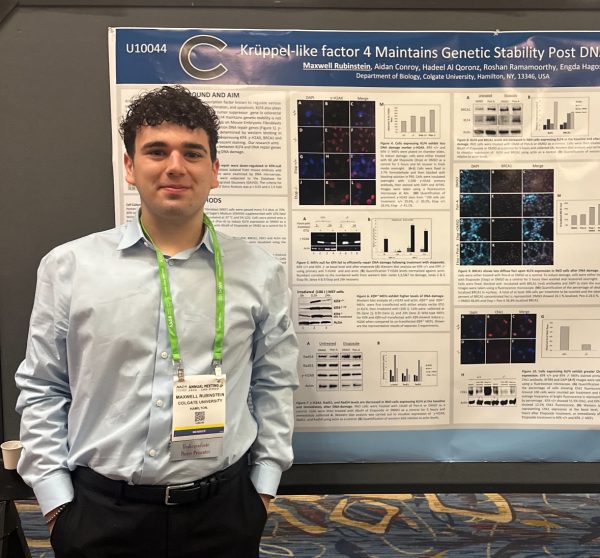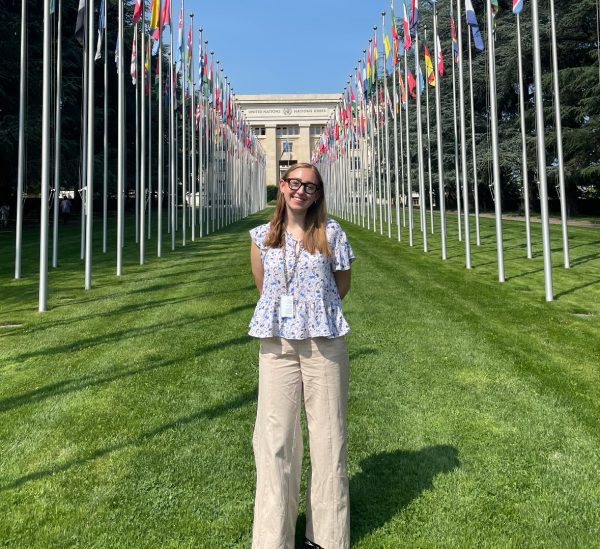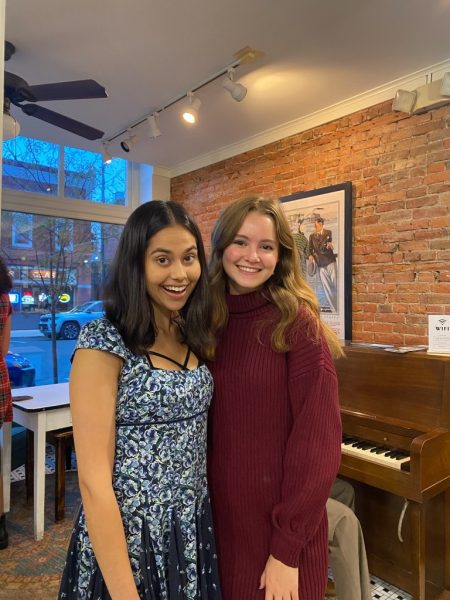Professor Chris Henke: An Expert in the Field
Ever since Professor of Sociology and Environmental Studies Chris Henke began teaching at Colgate twenty years ago, he has embodied the interdisciplinary nature of the liberal arts. His main faculty appointment is in anthropology and sociology (SOAN), but Henke has long taken on an additional role in environmental studies (ENST) — two departments that might not immediately appear to go hand-in-hand.
“I’ve been with ENST basically since I started at Colgate, teaching courses and serving on the steering committee for the program, so I’ve lived the split life between SOAN and ENST,” he said.
It turns out that many of his SOAN and ENST courses are able to be cross-listed. With degrees in both sociology and science and technology studies, Henke is in a unique position to make the linkage between the two departments for students. He’s particularly interested in the ways that science, technology, food and environmental resources come together.
“A lot of my research is in food and agriculture. It’s a good place to look at how natural resources — land, water, plants and animals — get mixed up in human systems of interest and power,” he said.
While Henke jokes that identifying his favorite course to teach would be like being asked to choose his favorite kid, he notes that his signature one is “Food,” an upper-level ENST and sociology course. Students take part in a farm internship, where they are able to see the ins and outs of the local farm “Common Thread.” He weaves his course with lessons from the farm internship and field trips to places like the Community Garden and Kriemhild Farms. Kriemhild is located between Hamilton, N.Y. and Earlville, N.Y. and is one of many dairy farms in Madison County, where dairy is a main source of revenue.
“I really like the fact that there’s this community connection at the farm and there’s an experimental component — the students literally do hands-on work on the ground. The students are learning from the farmers in a way that you can’t learn from books. It’s a nice way to complement the stuff we read with their experiences out in the field,” Henke said.
Many of Henke’s other courses incorporate a community-based approach. In the major requirement ENST 390, “Community-based Study of Environmental Issues,” Students are put into teams to work on projects that benefit the community in ENST topics, all while they learn proper research methods.
“[We try] to partner with community member organizations to find out what they need and if there’s a way we can use our research skills to support our community, and maybe learn from them, too. It’s a more collaborative based way of research — you try to learn about their needs, hopes, interests.”
In a more personal project, Henke partnered with environmental justice specialist April Baptiste, a professor of ENST and Africana and Latin American studies to tackle the question of just how accessible locally-sourced food is in Madison County. They set out to answer key questions about the local population surrounding equity in environmental resources.
“In a lot of ways, we have a nice opportunity — there are a lot of farms that do provide for our farmer’s market — we live in this horn of plenty, but is that accessible to everyone? Are there certain barriers or limitations to those who are lower-income because that’s often the stereotype, if you want to go to buy local arugula at the farmer’s market that’s just for fancy people, not for everybody,” Henke said.
The two conducted research at the Hamilton Food Cupboard, where lower-income residents can redeem Supplemental Nutrition Assistance Program (SNAP) benefits through the Department of Agriculture. They found that during the COVID-19 pandemic, SNAP has increased, so there’s been a major infusion of cash support. Food insecurity overall trended downwards during the pandemic — although this might not be the experience of everyone redeeming SNAP benefits. More specific to Madison County, Baptiste and Henke found that residents overwhelmingly do want to buy locally.
“Professor Baptiste and I found in our research that people were really interested in — actually maybe more than we expected — being local shoppers and having connections with their local farmers. But, to go to a place like a farmer’s market on a Saturday morning, if you don’t have your own car and you’re depending on people to give you a ride to the grocery store once a month or every two weeks, you can’t just say ‘Hey I’m gonna run over to the farmer’s market this morning,’” Henke said.
Transportation is a major, if not the largest, hurdle to food access in Hamilton. “It’s just a lot more logistically challenging to do this eating and shopping than it would be to someone like me who can just pop into my car, or leave my house — I live in the village. … I just have a set of privileges that make it more doable for me than others,” Henke said.
An additional barrier to buying local is the disappearance of traditional grocery stores and supermarkets, and the subsequent emergence of dollar stores. There’s the Dollar General and Dollar Tree in Hamilton alone, and Henke notes that they’re sprouting up just about everywhere. In nearby Morrisville, N.Y., the town’s only grocery store closed a few years ago, leaving residents to depend on either these dollar stores or grocery stores further away such as Hamilton’s Price Chopper or the ALDI near Cazenovia. Gas stations also have food items, and even accept SNAP benefits, if eligible.
“However, you’re not going to get too many healthy options at a dollar store or places like [a gas station] where you can’t buy things like fresh produce. There might be canned vegetables at the dollar store, but the options will be more limited. So that is a concern for people in terms of food access,” Henke said.
According to the Colgate Magazine, Baptiste and Henke found through their research that food from a place like Price Chopper is maybe not actually all that different in price from what you could find at a stand in the Hamilton farmer’s market, depending on the season.
“So consumers might find some surprising deals, if they can get past the barriers,” the magazine states.
When asked about his favorite thing about Colgate, Henke did not hesitate: The community.
“The fact that I can walk around campus and say ‘hi’ to my students, my colleagues — I just kind of know everybody and love the community aspect of that, and just feeling like Colgate is my home. It’s just different than at a bigger school, [where] I would be a little more siloed I think in terms of connections with my other colleagues across the campus and with students. At Colgate, I can stretch out and form more connections and meet more people,” Henke said.











